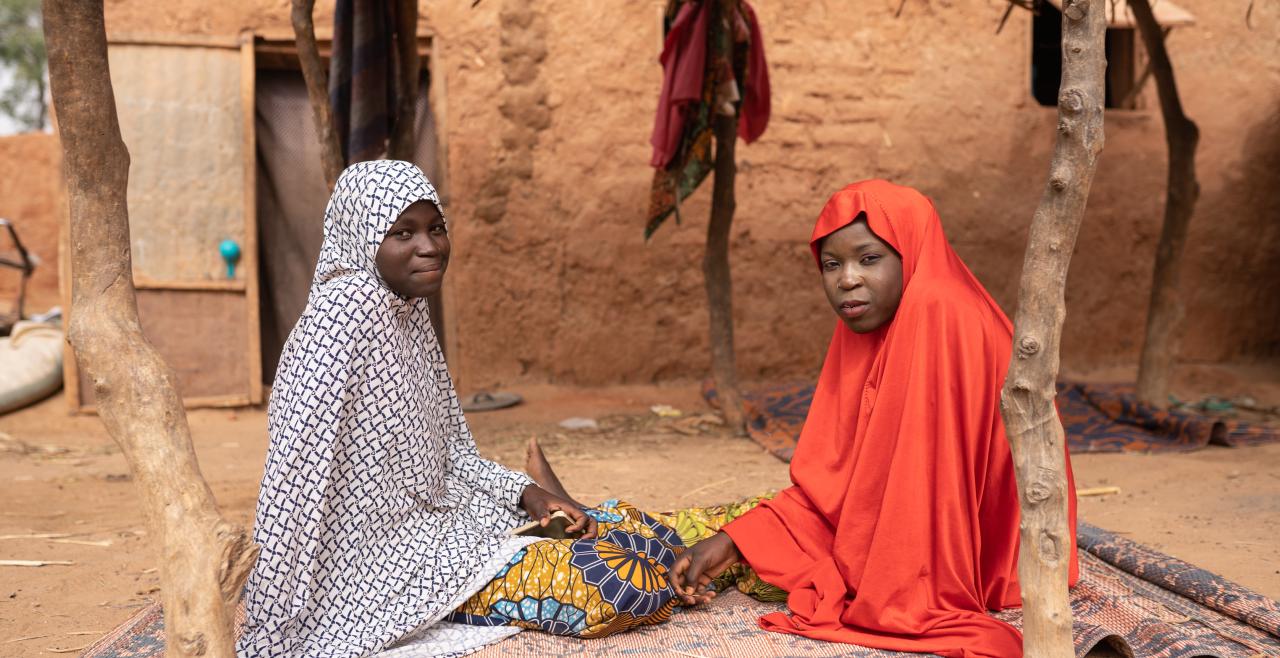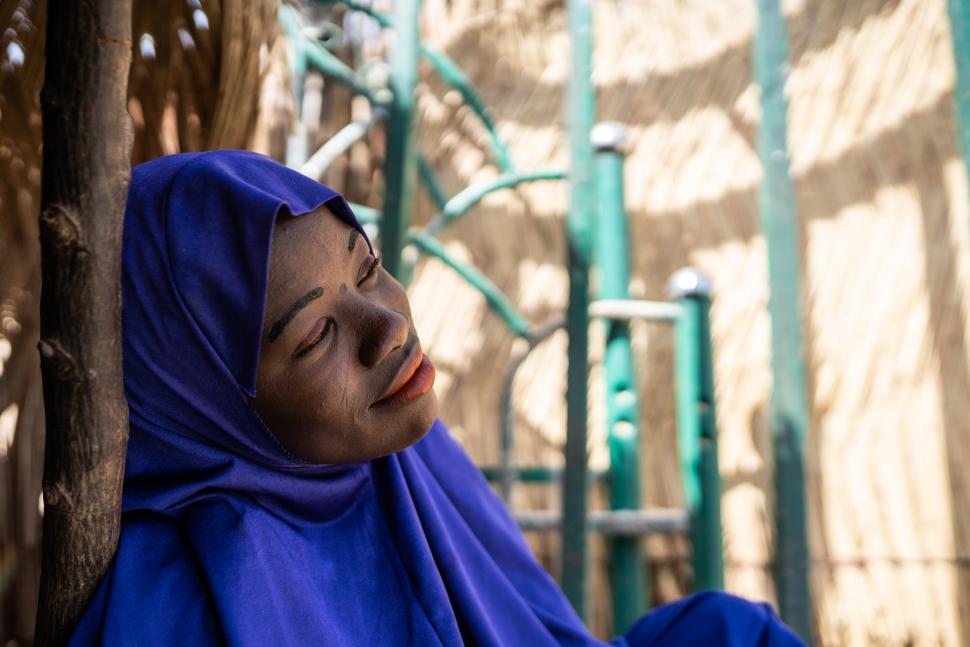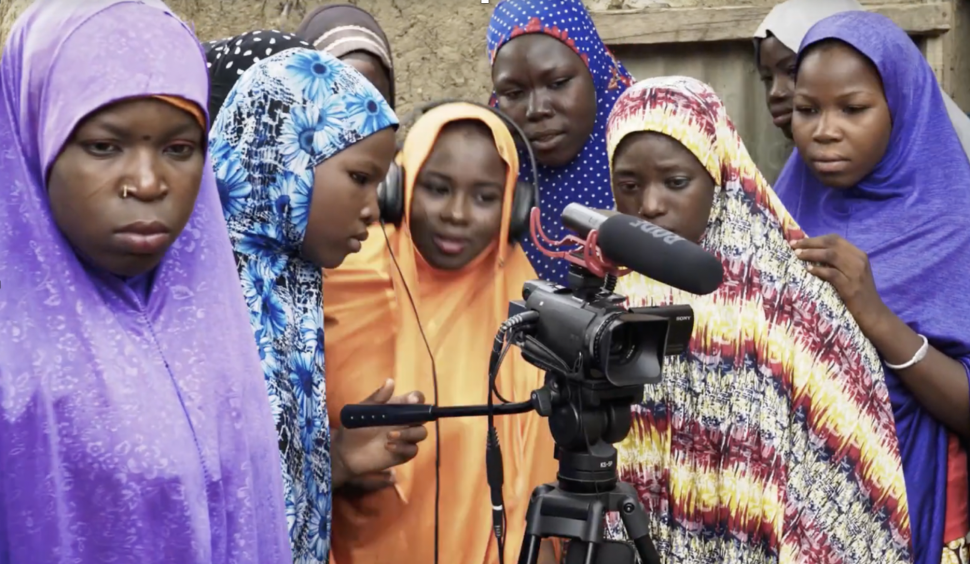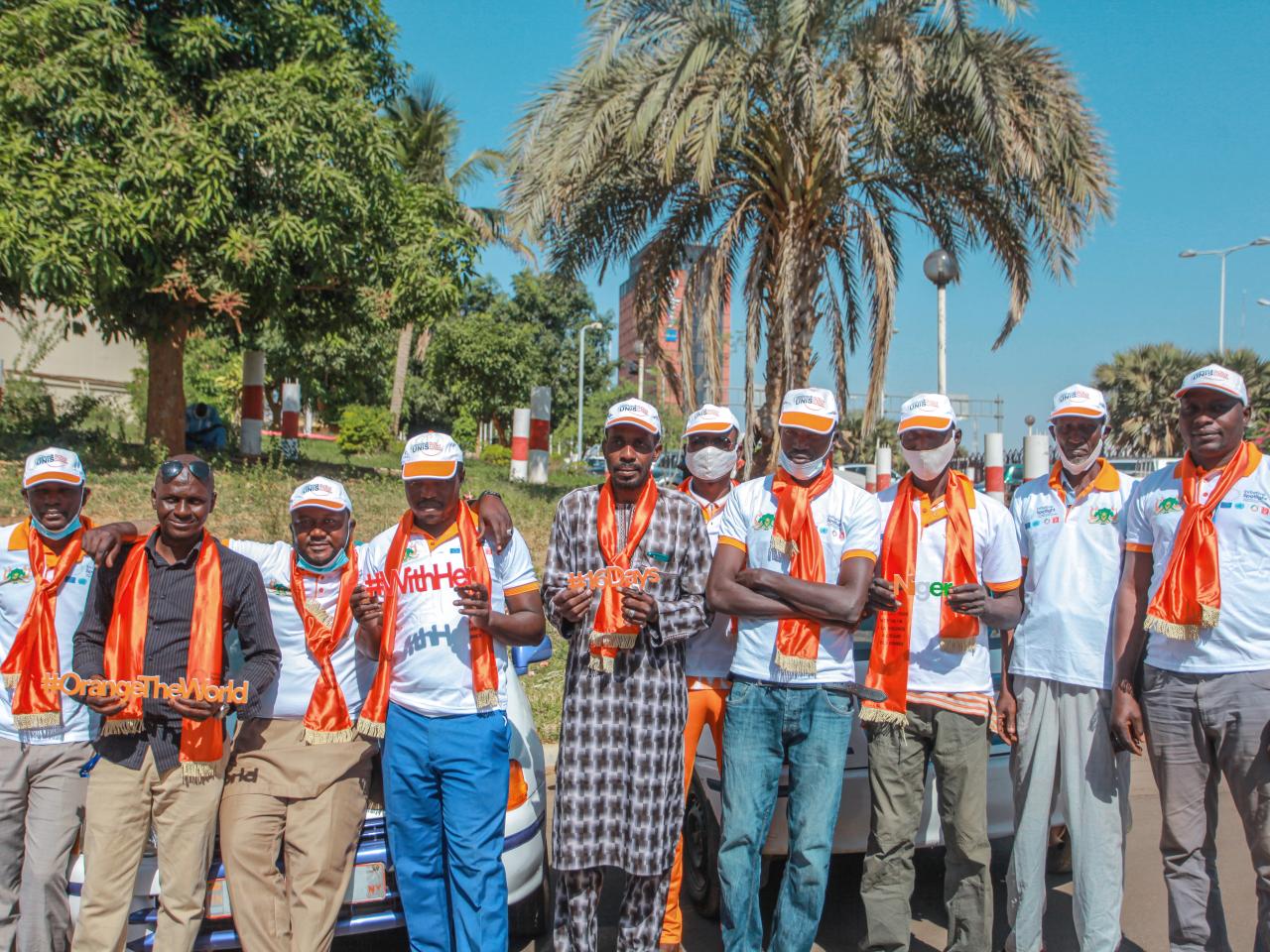It takes a village: protection committees intercept child marriages in Niger

MARADI REGION, Niger - In Niger, a Spotlight Initiative-supported partnership between UNICEF, the Government and community members led to the establishment of village protection committees (VPC) to prevent child marriage and other forms of violence against women and girls (VAWG). In 2020, VPCs managed over 509 cases of VAWG. A national committee has also been established to study how customary and religious law disproportionately affect women and girls.
When Olabisi, 17, and Aminata, 18, heard that a friend was to be married at the age of 17, they pleaded with her to resist.
“When she found out that her family had accepted her marriage, she felt so sad,” says Olabisi. “She was traumatized. She even stopped eating and lost weight.”
“We talked to her. We told her to object by all means,” explains Aminata. “But we know that tradition does not allow us to go against the will of our parents. Some girls run away from home or commit suicide to avoid a forced marriage.”
“When she found out that her family had accepted her marriage, she felt so sad. She even stopped eating and lost weight.” - Olabisi, 17
Seeing no other option, the friends alerted their local village protection committee (VPC) in the Maradi region. With the help of the village chief and committee members, their friend’s marriage was successfully halted.
For thousands of children in Niger, childhood is cut short by marriage. UNICEF estimates that around 77 per cent of young girls are married before the age of 18, and 29 per cent before the age of 15. Child marriage persists in the country for a variety of reasons, including poverty, low levels of education, and social and gender norms to which families feel pressured to conform. Upholding social and religious traditions, and the fear of dishonour from pregnancy outside of marriage, is also a major driver of child marriages. Olabisi and Aminata are part of a movement of young girls working against child marriage in the Niger, supported and funded by the Spotlight Initiative as well as the joint UNICEF-UNFPA Global Programme to End Child Marriage. The girls are called ‘Correspondents for Protection’ (C4P) and are also members of their local VPC. They received training in life skills, human rights and effective communication, which has increased their ability to protect themselves and other girls at risk of child marriage.
“The girls gain the knowledge they need to act individually or collectively, which enables them to be active in village protection committees,” says UNICEF Niger Child Protection Specialist,
Salmey Bebert. “The role of committee members is to continue sensitizing communities on the risks of child marriage, monitoring the implementation of the action plan on social change and managing cases of children who are victims of abuse, violence and exploitation, including child marriage.”
Dedicated trainers in each region build the capacity of VPC members. Each committee appoints five members who receive a three-day training course at the municipal level before returning to their villages to train the rest of their VPC. Their training is focused on a child’s rights and their needs at different stages of development; practices that violate these rights and how to redress them; and social mobilization and facilitation techniques to equip committee members with skills to continue sensitizing their communities on VAWG issues and effective case management.
“It’s amazing to see young girls feeling empowered in their communities. They say, ‘my community listens to me – even the adults listen!'” - Spotlight Initiative Communications Specialist Fatou Binetou Dia
While a child’s welfare is overseen primarily by parents and family life is governed by informal, traditional laws in Nigerien society, the concept of what is considered acceptable by ordinary people can differ greatly from official government policy. For example, child marriage is internationally recognized as a human rights violation and the Nigerien government has signed international treaties that set a minimum age of 18 for marriage. However, child marriage remains widely accepted in Nigerien society, with great consequence. Married girls and child mothers have limited power to make decisions, are generally less able to earn an income, and are vulnerable to multiple health risks, violence, abuse and exploitation.
“I highly appreciate this initiative, which is in line with the commitments of the President of the Republic Head of State, His Excellency Issoufou Mahamadou, to promote and protect the dignity and rights of women,” said His Excellency M. Brigi Rafini, Prime Minister and Head of Government, when officially launching the Spotlight Initiative in Niger.
“It’s just amazing to see young girls feeling empowered in their communities,” says Spotlight Initiative Communications Specialist in Niger, Fatou Binetou Dia. “They say, ‘my community listens to me – even the adults listen! I have a role to play and I will be heard’. The training and knowledge these girls have received is changing their lives and the perception of women and girls in their communities.”
VPCs serve as a middle ground between government policy and the traditional systems that ordinary people trust. After all, the committee members are from within the same communities, but share the vision of child protection as defined by the Government.
A total of 509 cases of VAWG were managed in 2020 across the 45 villages where VPCs have been established under the Spotlight Initiative programme. Forty-eight cases involved child marriages and 127 were related to physical or psychological violence. In 234 cases, girls whose education was interrupted managed to return to school.



